Fiction Books to support mental health & wellbeing
These suggested titles explore mental health issues, increase awareness, encourage dialogue, reduce stigma, develop real understanding and explore emotions for discussion.
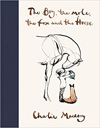
The Boy, the Mole, the Fox and the Horse by Charlie Mackesy
Four unlikely friends, discover their story and their most important life lessons.
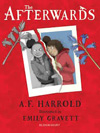
The Afterwards by A.F. Harrold
A powerful, poignant, darkly comic and deeply moving story about friendship at its most extraordinary.
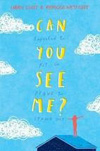
Can you see me? By Rebecca Wescott & Libby Scott
Endearing, insightful and warmly uplifting, Can You See Me? is a story of autism, empathy and kindness
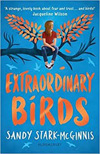
Extraordinary Birds by Sandy Stark-McGinnis
Eleven-year-old December knows everything about birds, and everything about getting kicked out of foster homes. All she has of her biological mum is the book she left behind.
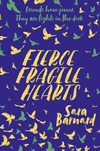
Fierce fragile hearts by Sara Barnard (Year 9 and above)
It is about leaving the past behind, the friends who form your future, and learning to find love, in all its forms.
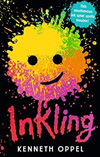
Inkling by Kenneth Oppel
A moving but light-hearted story about grief, family and a sixth-grade rivalry. When Ethan’s class is given the task of creating a graphic novel and magical ink jumps out of his father’s sketchbook, a strange series of events is set into motion.
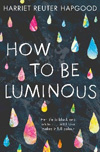
How to be luminous by Harriet Reuter Hapgood (Year 9 and above)
A heart-wrenching story about the aftermath of tragedy and the power of self-belief and love.
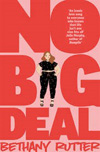
No big deal by Bethany Rutter (Year 9 and above)
A fierce and body-positive celebration of friendship, first crushes and loving yourself
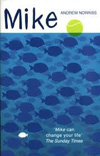
Mike by Andrew Norris
An unexpected, moving, thought-provoking tale of . . . learning to be true to yourself.
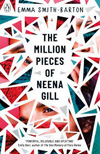
The Million Pieces of Neena Gill by Emma Barton-Smith (Year 9 and above)
This novel thoughtfully and sensitively portrays a teenage experience of psychosis, a mental illness rarely written about.
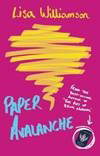
Paper Avalanche by Lisa Williamson (Year 9 and above)
Fourteen-year-old Ro Snow’s got a secret: her house is filled to the doors with her mother’s hoarded rubbish. A brilliant, thoughtful read that explores Bonnie’s mental health issues and their effect on Ro with compassion.
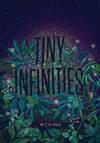
Tiny Infinities by J H Diehl
Thirteen-year-old Alice is trying to stop her family falling apart. A very beautiful and sensitively handled book that touches on themes of mental health, family relationships, friendships and love.
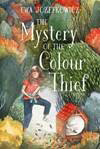
The Mystery of the Colour Thief by Ewa Jozefkowicz
The book paints a convincing picture of a harrowing time in a young life, and the time, talking and friendship that helps her to process trauma. But this is by no means a gloomy read, offering ample humour, hope and optimism.
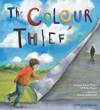
The Colour Thief by Andrew Fusek Peters and Polly Peters
Drawing on personal experiences of living in a family blighted by depression, this unusual, yet important, book may help youngsters to make sense of an illness they cannot see.
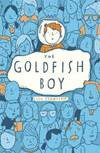
The Goldfish Boy by Lisa Thompson
Matthew has Obsessive Compulsive Disorder. Can he help an investigation into the abduction of a child, perhaps without even leaving his house? A captivating read, combining a compelling whodunit with an engaging protagonist.
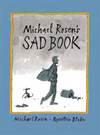
Michael Rosen's Sad Book by Michael Rosen
The subject of bereavement is treated in an unusual way in Michael Rosen's Sad Book, which deals with the death of the author's own son.
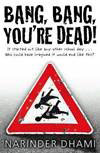
Bang, Bang, You're Dead! by Narinder Dhami
Dhami's thriller takes us from a dysfunctional home, where twins Mia and Jamie live with their divorced mother – who has bipolar disorder – to a school siege in which a pupil holds a class hostage. Compelling.
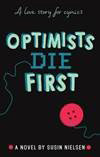
Optimists Die First by Susin Nielsen (Year 9 and above)
Petula's life is ruled by anxiety, fear and pessimism after her little sister died two years before. Then she meets Jacob, and an unconventional love story unfolds. Another five star read from Susin Nielsen: one of the most talented teen writers working today.
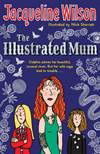
The Illustrated Mum by Jacqueline Wilson
This is a moving yet unsentimental account of two children coming to terms with their mother’s depression, mental instability and alcohol problem.
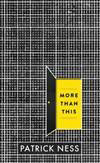
More Than This by Patrick Ness
Carnegie Medal-winning author Patrick Ness tackles weighty questions of life and death head on in this provocative and challenging novel. Combining elements of a sci-fi thriller with the abstract and philosophical, this is bold, unusual and beautifully written.
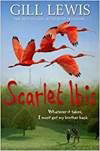
Scarlet Ibis by Gill Lewis
At times heart-rending, this is a powerful story which skilfully gains our sympathy for those who are often misjudged, feared and derided by society.
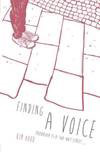
Finding a Voice by Kim Hood
This is an engaging story about the two-way nature of friendship and the risks of making assumptions. The overriding message is uplifting, whilst also leaving the reader with a powerful reminder that good intentions aren't always enough.
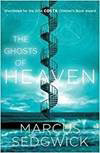
The Ghosts of Heaven by Marcus Sedgwick
The Ghosts of Heaven is an excellent book that will open up new avenues of thought and future reading and introduces teenage readers to a more inventive understanding of storytelling.
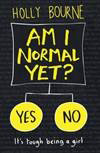
Am I Normal Yet? by Holly Bourne (Year 9 and above)
This is a powerful and engrossing read that successfully informs, shocks, reassures and entertains in equal measures.
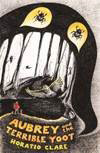
Aubrey and the Terrible Yoot by Horatio Clare
This fabulously illustrated book addresses the difficult subject of parental depression, at once describing the horror of Aubrey’s dad’s experience but also remaining upbeat and full of surreal humour.
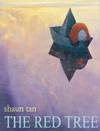
The Red Tree by Shaun Tan
The perfect blend of words and pictures, this is a wonderful book to share with anyone suffering from depression or uncertainty.
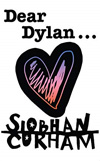
Dear Dylan by Siobhan Curham
A very interesting and fascinating story about a 14-year-old girl, depressed, troubled and miserable with her family problems. When she starts emailing Dylan, everything changes and she feels like she could have her life back somehow.
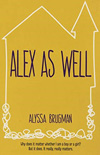
Alex as Well by Alyssa Brugman (Year 9 and above)
About questioning identity, discovering sexuality, navigating friendships and finding a place to belong.

Counting by 7s by Holly Godlberg Sloan
This deals with the difficult issues of grief, loss, feeling alone, feeling different. Ultimately uplifting and reassuring.

My Brother's Shadow by Tom Avery
With themes of suicide, tragic loss and alcoholism - a young girl experiences the sudden loss of her brother and goes on a journey of recovery.

We are all Made of Molecules by Susin Nielsen
This novel explores the difficulties of split families, homophobia, bullying, friendship, young people on the autistic spectrum and bereavement.

Silence is Goldfish by Annabel Pitcher
A story about family, about complex human emotions and about identity, bullying and the story of an elective mute.

Notes on Being Teenage by Rosalind Jana (Year 9 and above)
Written from a female perspective, Rosalind experienced illness and a body distorting disability in her mid-teens, and witnessed the effects of her father's deep depression on the family. The book itself covers a huge range of topics from body image and feminism to exam stress and mental health.

Night Shift by Debi Gliori
A ground breaking picture book on depression with stunning illustrations.
Non-fiction books to support mental health & wellbeing
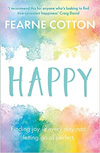
This book is a way to release what's going on inside your head and to keep heading towards the good stuff. The simple stuff.
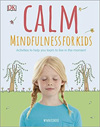
This book teaches kids how to be mindful by focusing their thoughts and noticing the world around them using fun activities.
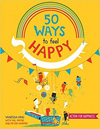
This book is packed full of activities and ideas to try with family, friends and on your own.
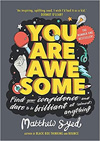
If you believe you can't do something, the chances are you won't try. But what if you really could get better at maths, or sport or exams? In fact, what if you could excel at anything you put your mind to?
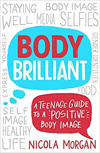
We're all bombarded with information and images - through the media and our peers - about being too big, too small, being cool, being popular or having the 'right' kind of clothes. This book addresses the body issues that nearly everyone worries about at some point in their lives and gives practical and mindful solutions to work through worries, using real-life examples, quotes and anecdotes from young adults interviewed especially for this book.
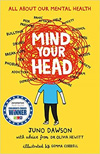
We all have a mind, so we all need to take care of our mental health as much as we need to take care of our physical health. And the first step is being able to talk about our mental health.
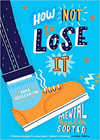
It's not just your body that should be fit and healthy - your mind needs to be, too! How Not to Lose It is the go-to guide for achieving a balanced mind and strong emotional well-being.
More titles available from the school Library